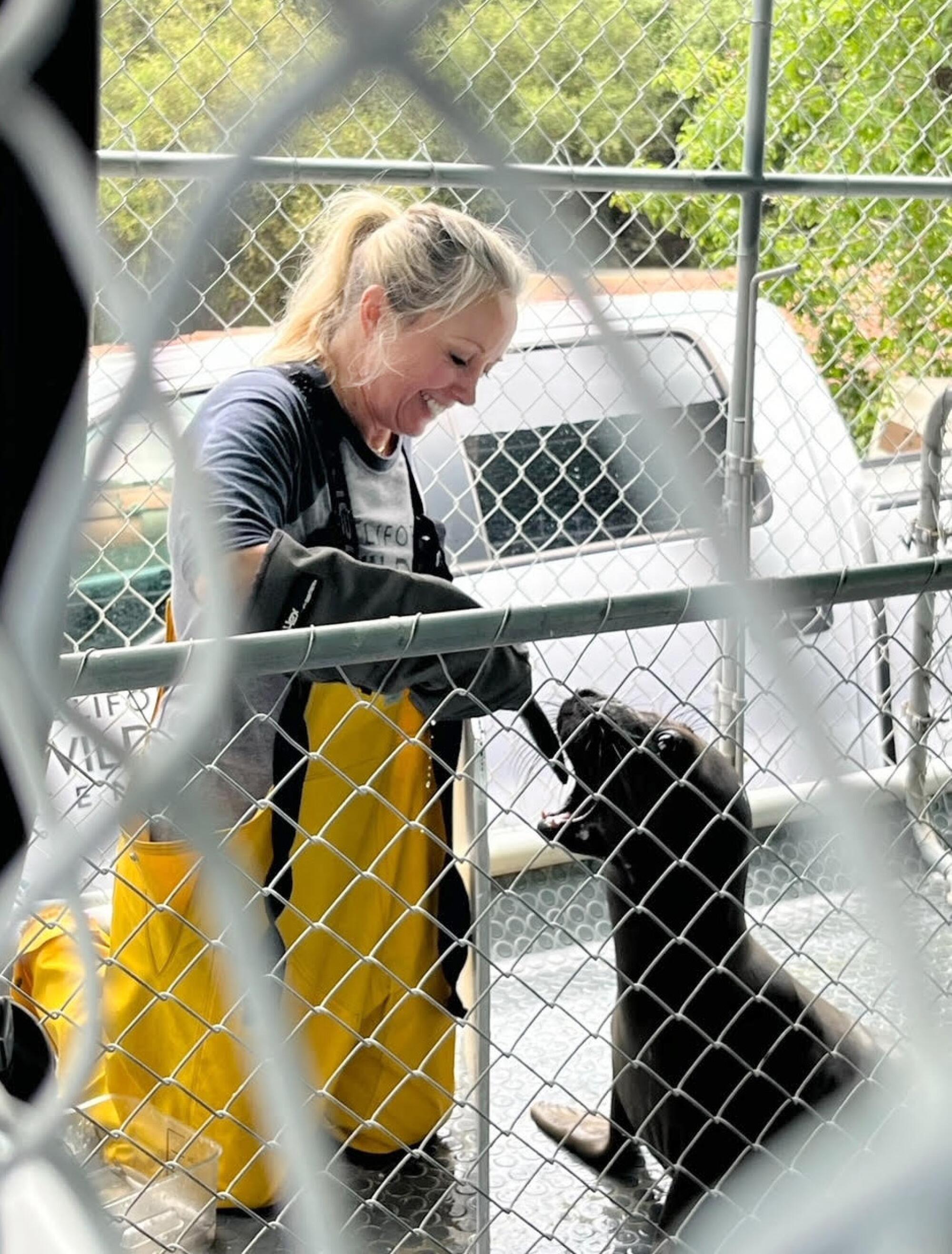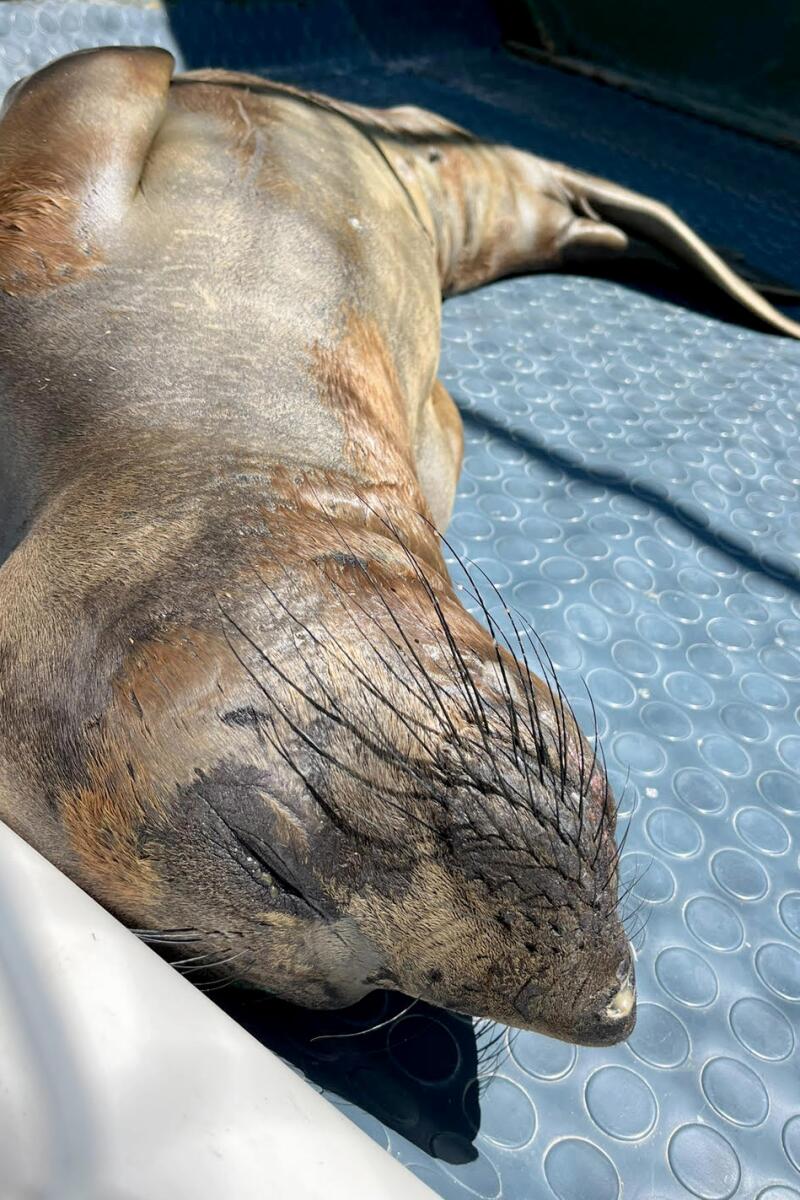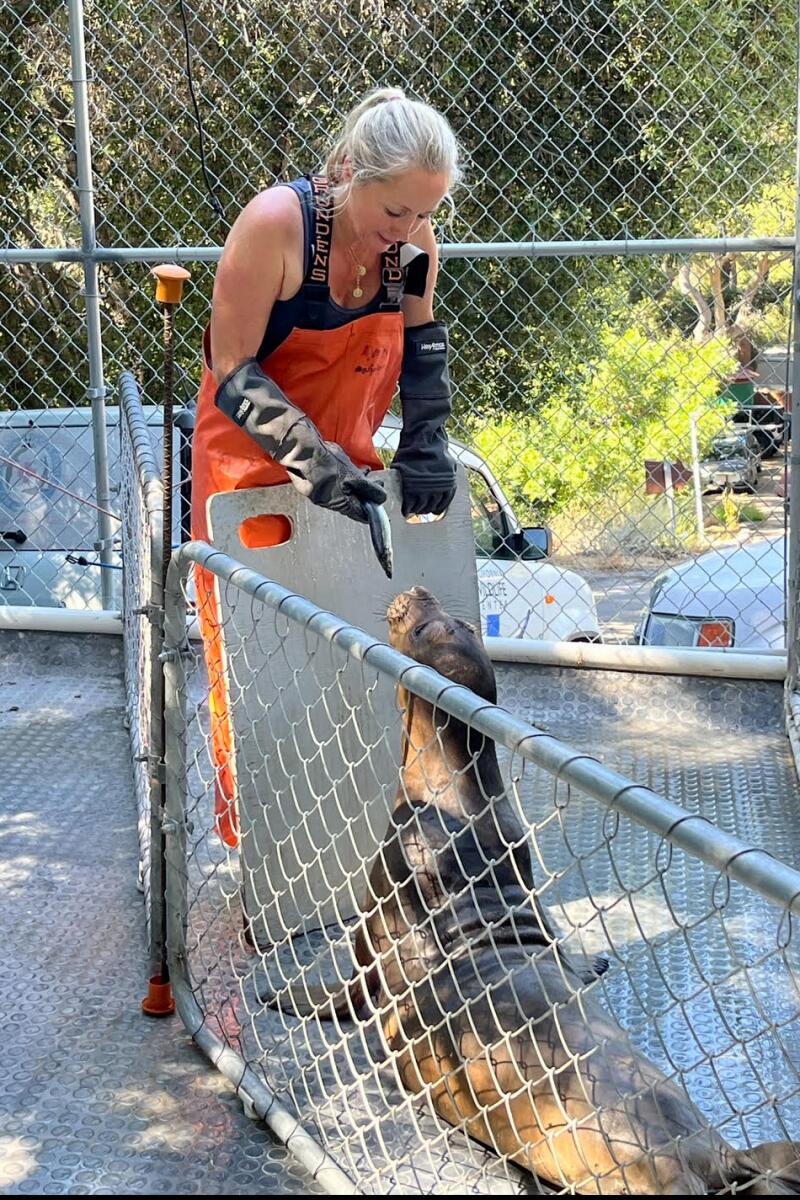“Are you leaving again? ” I asked my husband, Rob, as he packed on his second trip with the boys in three weeks.
“Just for a few days.”
I felt the joy he had when he escaped. He would go skiing, and I would stay home, take care of the dogs and eat “girl food” by myself. I hated that I didn’t have fun anymore. I didn’t give myself permission to pursue what I was interested in, partly because I didn’t know what to pursue. How did people know what to do when their nests were washed away?
When I turned 50 in 2018, I was struggling with depression and any sense of feeling good in my body had been replaced. I was recovering from heart surgery, menopause was approaching and I was losing my purpose. For years I had put aside my cherished writing goals and chosen to put Rob and our blended family first, but in the quieter moments, I felt empty. Although I was very grateful to have a partner whose income covered our needs, I felt that something was missing in my personal growth. I tried to satisfy that weakness by overeating or shopping, which only made me feel worse.
“I didn’t give myself permission to pursue what interested me, because I didn’t know what to pursue. How did people know what to do when their nests hatched?”
When my daughter was in high school and entering the independent phase and Rob’s children started (this was the second marriage for both of us), I wondered what would come next. Suddenly it seemed that the built-in social structures I had relied on in my 30s and 40s were evaporating in midlife. Volunteering at my daughter’s school was a thing of the past and the moms’ groups were long gone. My daughter needed me a lot – and spent half her time with her father. I realized that part of what I was feeling was loneliness.
That is known loneliness can increase the risk of heart disease, dementia, stroke, anxiety and depression to adults, but its negative effects are not limited to adults. The general practitioner announced lunity is a nationwide epidemic in the past year. But for the older generations in particular, rsearch programs that friendship is important for reducing cognitive decline and has many health benefits.
I wasn’t sure where to start, because it seemed like so many shifts were happening at the same time, but I knew that getting married was not an automatic cure for loneliness. The strong relationship between Rob and I began to change over the years. Rob was a very successful person who worked hard and played hard, while I was struggling to find my footing as a freelance writer. When I was young, it was natural to prioritize his needs and her needs as a breadwinner. But that got harder when I hit my 40s.
In some ways I had stunted my growth in order for my marriage to succeed. I chose not to pursue a career that might have been too difficult or taken away from my family. Those decisions felt like the right thing at the time, but I didn’t have the financial strength. When counseling our couple, the doctor told me, “You have to do something about this imbalance. “Sometimes you have to grow apart before you can grow together.”
So I did something about it. I started a new beginning in midlife.

Tara Ellison volunteers at the California Wildlife Center. Hand feeding gives keepers a stress-free opportunity to examine sea lion and elephant seal pups.
(California Wildlife Center)
Midlife lies between how you lived in the past and how you want to continue. In recent years, women have begun to tell the story of menopause, thinking of it as a way of coming home. The main issue is the time that gives the opportunity to renew, the opportunity to organize a new course. I may have been against a changing body and wacky hormones, as well as a side of loneliness, but I was determined to return that hand to something better – even if I didn’t know what how.
I had to make peace with my body and understand its needs better. A prescription for fresh air and sunshine, going for a walk has been essential for mental health (especially during COVID). In order to feel better, I paid attention to my hormones and sought out a gynecologist who is interested in what happens to women beyond childbearing years. That turned out to be more difficult than I thought, considering that menopause occurs in half of the population. Years ago, when I entered perimenopause, there were no resources for women on social media. The stigma surrounding perimenopause meant that no one was going to admit to being a downer (especially not in LA!) I had to learn to speak up for myself – and be rich – in order to take control my symptoms. It was a It was an amazing trip but I learned a lot.
With the goal of meeting other women my age, I started going to book signings, seminars or menopause symposiums alone to force myself to deal with the anxiety of socializing and making conversation. It’s interesting to hear what other people are up to, and it seems that giving in to creative passions is high on their lists. A woman I know rediscovered her love of playing the piano; the other spends his free time painting.
Sometimes it’s not as easy as going back to an old hobby. “I spent all this time taking care of my family and now I have time – I don’t know what to do with it,” one of my girlfriends in her 60s confided. A friend said that two years before he left his job, he started taking a notebook in which he wrote every time he found something he wanted to explore. As soon as he retired, he started working on that list. Through these conversations I realized that, contrary to what society wants you to believe, the oldest women in the room are often the most interesting.
Contrary to what society wants you to believe, the older women in the room are often the most interesting.
Creativity was an important part of starting over, but I also wanted to dedicate my time to something bigger. Studies have confirmed that bwork or volunteer it can be an important step on the road to happiness and contentment. After finding an injured sea lion on the beach in Malibu, I met Heather Henderson, director of the marine program at the California Wildlife Center in Calabasas, and began volunteering with its rescue unit. aquatic animals. The organization rescues and rehabilitates sea lions and elephant seal pups. The cubs arrived emaciated and malnourished, received care and treatment and were released.
“It is not a masterpiece; maybe you don’t like it,” one of the volunteers warned me at first. He was right; some of them i very bad. But sometimes you don’t know what you’re made of until you’re tested. There are many tools for cleaning, chopping up frozen fish for fish smoothies and scrubbing slimy pinniped droppings from pens. Now it’s common for me to find fish scales hidden in my sports bra. But I’ve noticed that some of the mundane chores around the house are relaxing and make me feel more present. I stop worrying about my mother’s poor health and other pressing issues when I am faced with the task of hand-feeding a young elephant seal.
1

2

1. Relaxing in the sun promotes healthy skin. (Tara Ellison) 2. Once it swallows well, the elephant seal patients are ready to start feeding in the pool. (California Wildlife Center)
I was surprised to find that many of the other volunteers were also middle-aged.
“Because of the physical nature of the job, there’s a common misconception that you have to be young to be successful,” Henderson said. He estimates that about 35% of the active rescue and rehabilitation team is 45 years and older.
One of my fellow volunteers, Debra Loggia, told me: “It’s been nice to know that I’m always important and needed more than my family’s needs. At 64 years old I guess he is one of the oldest volunteers at CWC, but he is proud to know that he is also one of the strongest. I understand what he means. Doing this job for six seasons giving me new confidence, as well as a sense of purpose and community.
Now, six years into my new beginning, I have a different perspective. I don’t lean too much. By identifying my interests, growing my community and seeking new career opportunities, I have channeled my happiness into the outdoors.
Despite the weight of expectation, my relationship is successful. I am more engaged in what I do. On volunteer days I come home full of stories of tube feeding elephant seals. Because the work is already in progress – I am in the process of writing the book and the screenplay – sometimes I have to prioritize those days, even if it is difficult. Rob has been supportive of this process, mostly because it’s a lot of fun. By pushing through random loneliness and embracing my fears, this midlife crisis ended up being a midlife renewal.
Not everything is perfect. I still get lonely and have days when I feel down, or need to lower my expectations. There’s a certain melancholy about aging that I just can’t shake. But it doesn’t support me anymore – I’m still surprised.
“She’s leaving me,” Rob said as he watched me take a short walk with the girlfriend.
I said: “Only two nights.” “I’ll be back before you know it.”
He said: “I will still miss you.” And I believed him.
Tara Ellison writes about relationships and the struggles and triumphs of midlife. He is currently working on a memoir.
#Lonely #depressed #age #started #start #life